
Siliguri: The Gateway to Northeast India
Nestled in the foothills of the Eastern Himalayas, Siliguri serves as a crucial gateway to the northeastern states of India and the neighboring countries of Nepal, Bhutan, and Bangladesh. The city's unique geographical position makes it a bustling hub for trade, travel, and tourism. Siliguri is well-known for its tea gardens, lush green landscapes, and scenic views of the mighty Himalayan range. A visit to Siliguri is not complete without exploring its rich cultural heritage and natural beauty. Start your journey at the Mahananda Wildlife Sanctuary, where you can spot exotic animals like elephants, tigers, and leopards. For a more leisurely experience, take a stroll through the picturesque Salugara Monastery, renowned for its 100-foot stupa and serene atmosphere. The local markets offer a treat for the senses, with vibrant stalls selling everything from traditional handicrafts to aromatic spices. Don’t miss the Hong Kong Market, a shopper's paradise where you can find imported goods at reasonable prices. For a taste of the local cuisine, head to the countless street food stalls and try delicacies like momos, thukpa, and puchkas. Siliguri is also an excellent starting point for excursions to nearby hill stations like Darjeeling, Kalimpong, and Gangtok. With its blend of natural beauty, cultural richness, and modern amenities, Siliguri promises a memorable experience for every traveler.
Local tips in Siliguri
- Visit during the winter months (October to February) for the best weather.
- Hire a local guide for a more in-depth experience of the Mahananda Wildlife Sanctuary.
- Carry cash, as many local markets and stalls do not accept cards.
- If you plan to visit nearby hill stations, book your accommodations in advance.
- Try the local tea, which is renowned for its unique flavor.
Siliguri: The Gateway to Northeast India
Nestled in the foothills of the Eastern Himalayas, Siliguri serves as a crucial gateway to the northeastern states of India and the neighboring countries of Nepal, Bhutan, and Bangladesh. The city's unique geographical position makes it a bustling hub for trade, travel, and tourism. Siliguri is well-known for its tea gardens, lush green landscapes, and scenic views of the mighty Himalayan range. A visit to Siliguri is not complete without exploring its rich cultural heritage and natural beauty. Start your journey at the Mahananda Wildlife Sanctuary, where you can spot exotic animals like elephants, tigers, and leopards. For a more leisurely experience, take a stroll through the picturesque Salugara Monastery, renowned for its 100-foot stupa and serene atmosphere. The local markets offer a treat for the senses, with vibrant stalls selling everything from traditional handicrafts to aromatic spices. Don’t miss the Hong Kong Market, a shopper's paradise where you can find imported goods at reasonable prices. For a taste of the local cuisine, head to the countless street food stalls and try delicacies like momos, thukpa, and puchkas. Siliguri is also an excellent starting point for excursions to nearby hill stations like Darjeeling, Kalimpong, and Gangtok. With its blend of natural beauty, cultural richness, and modern amenities, Siliguri promises a memorable experience for every traveler.
When is the best time to go to Siliguri?
Iconic landmarks you can’t miss
Hong Kong Market
Explore Hong Kong Market in Siliguri for a unique blend of shopping, local culture, and delicious street food in the heart of West Bengal.
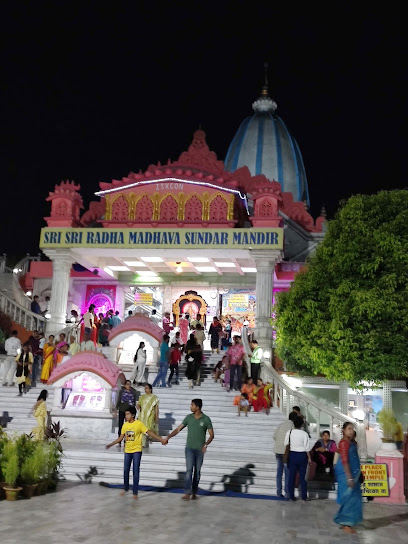
City Centre
Explore the vibrant City Centre in Siliguri, a shopping mall offering a delightful mix of retail, dining, and entertainment experiences for all ages.
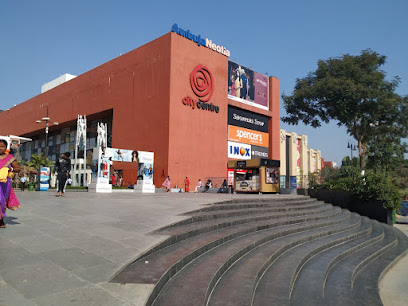
Bidhan Market
Discover the vibrant Bidhan Market in Siliguri, where local culture, unique shopping, and delectable street food await every visitor.
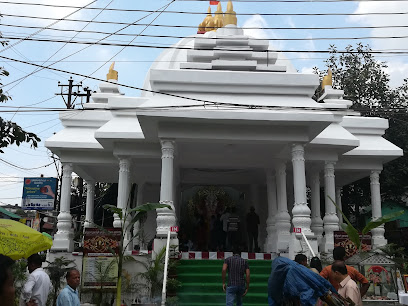
Bengal Safari
Explore Bengal Safari, a wildlife paradise in Siliguri, West Bengal, showcasing exotic animals and promoting conservation in a stunning natural setting.
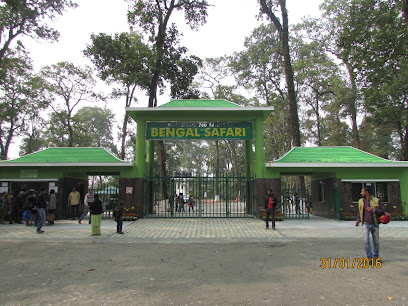
ISKCON Siliguri
Explore ISKCON Siliguri, a divine destination blending rich traditions, stunning architecture, and spiritual experiences in West Bengal.
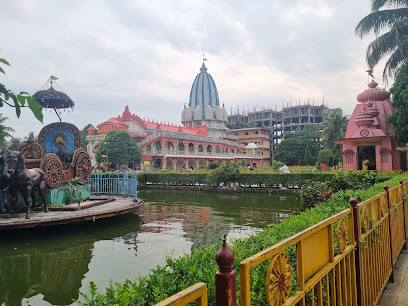
Siliguri Junction Station
Explore the vibrant Siliguri Junction Station, your gateway to the scenic beauty and cultural richness of North-East India.
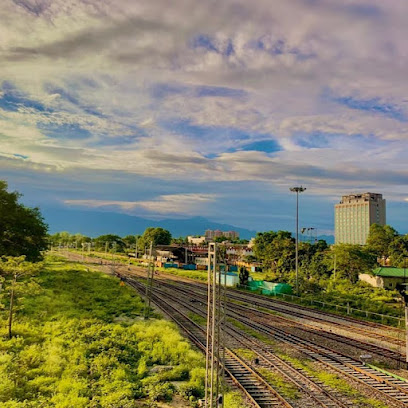
Savin Kingdom
Explore Savin Kingdom in Siliguri - an amusement park filled with thrilling rides, a movie theater, and a refreshing water park for unforgettable family fun.
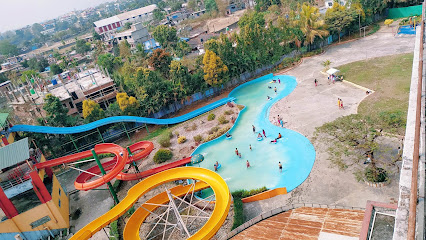
Banglabandha Zero Point
Explore the stunning natural beauty and cultural richness of Banglabandha Zero Point, the northernmost gem of Bangladesh.
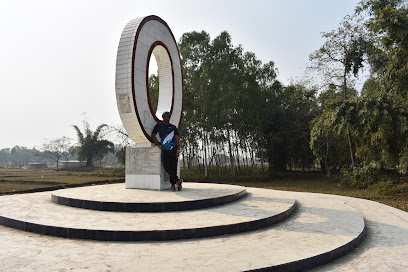
Courtyard Siliguri
Discover unparalleled luxury and convenience at Courtyard Siliguri, your gateway to exploring the scenic beauty and cultural richness of West Bengal.
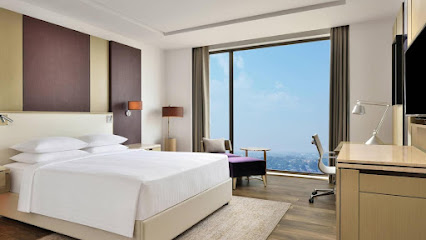
City Mall
Discover the vibrant shopping experience at City Mall in Siliguri, where fashion meets local culture in a lively atmosphere.
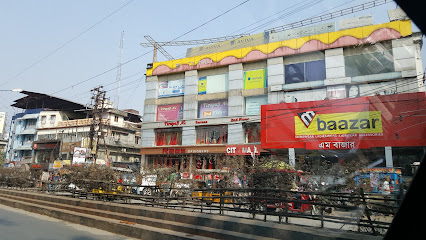
Skkky Club
Experience the vibrant flavors of Indian cuisine at Skkky Club in Siliguri, a family-friendly restaurant and bar offering stunning city views.
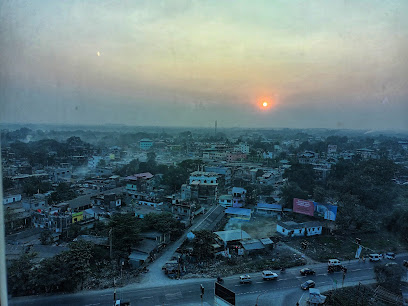
Kanchenjunga Stadium
Discover the vibrant atmosphere of Kanchenjunga Stadium in Siliguri, a hub for sports and cultural events that showcases the spirit of West Bengal.
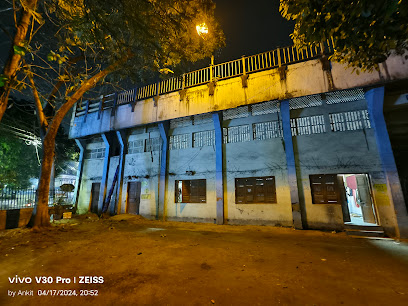
North Bengal Science Centre
Discover the fascinating world of science at North Bengal Science Centre, where learning meets fun in an interactive environment.
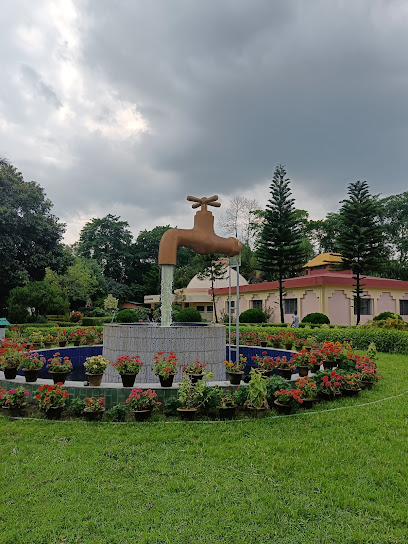
Sinclairs Siliguri
Discover the charm of Siliguri with comfort at Sinclairs Siliguri - your perfect home away from home in West Bengal.

Ritam Music Institution
Discover the melodic charm of Ritam Music Institution, a serene park in Siliguri blending nature, music, and cultural experiences for all.
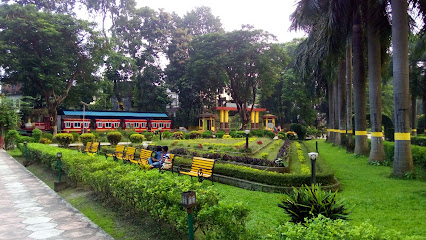
Unmissable attractions to see
Siddheshwar Dham (Char Dham)
Experience spirituality and breathtaking views at Siddheshwar Dham, a must-visit Hindu temple complex in Sikkim, India.
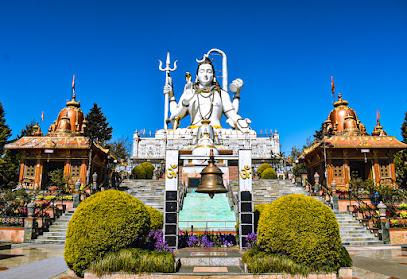
Bengal Safari
Explore the enchanting Bengal Safari, a premier wildlife park in Siliguri where adventure meets nature's beauty.
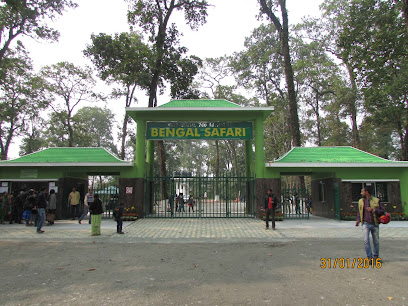
ISKCON Siliguri
Discover the serene beauty and spirituality of ISKCON Siliguri, a must-visit Hindu temple and cultural landmark in West Bengal.
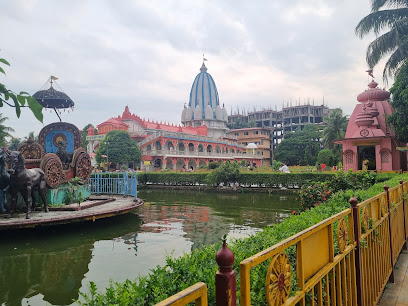
Tea Garden View
Explore the enchanting Tea Garden View in Darjeeling, where lush greenery meets breathtaking mountain vistas in a serene natural setting.
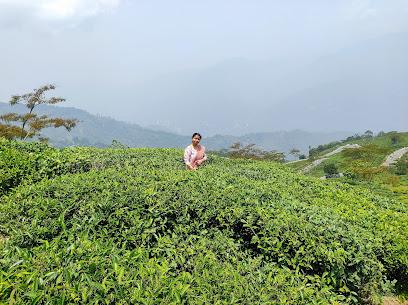
Savin Kingdom
Experience the ultimate family adventure at Savin Kingdom, Siliguri's premier amusement park, water park, and movie theater all in one thrilling destination.
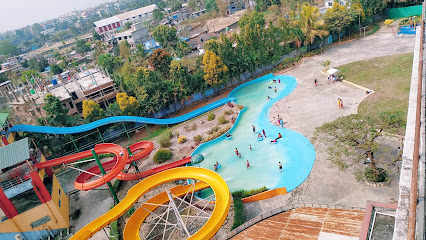
Padmaja Naidu Himalayan Zoological Park
Explore the Padmaja Naidu Himalayan Zoological Park, a haven for wildlife enthusiasts in the heart of Darjeeling, showcasing the rich biodiversity of the Himalayas.
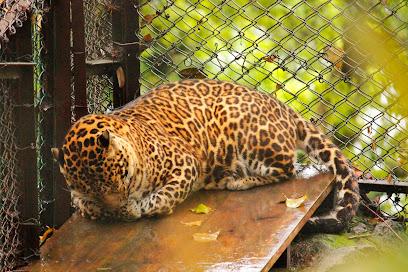
Simana View Point
Discover the unparalleled beauty of the Himalayas at Simana View Point - a must-visit for travelers seeking breathtaking landscapes and tranquility.
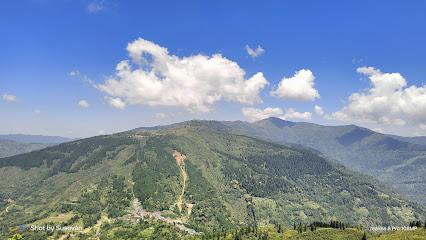
Observatory Hill View Point
Experience unparalleled beauty and tranquility at Observatory Hill View Point in Darjeeling, the ultimate destination for breathtaking views and serene landscapes.
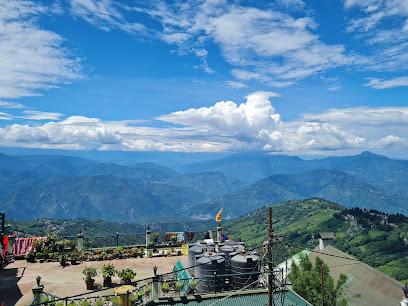
Darjeeling Clock Tower
Experience the charm of Darjeeling at the iconic Clock Tower, a historical landmark surrounded by vibrant local culture and stunning views.
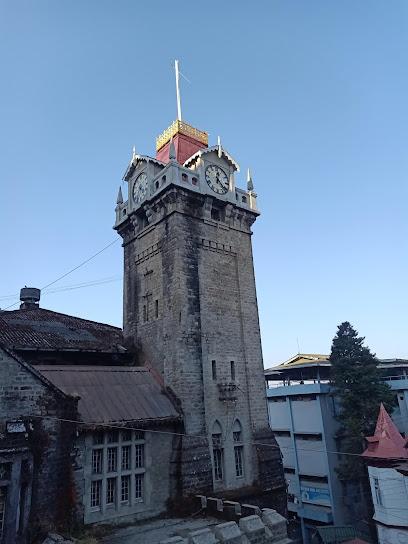
Dali Monastery
Explore the tranquility of Dali Monastery in Darjeeling, a captivating Buddhist temple offering spiritual insights and stunning mountain views.
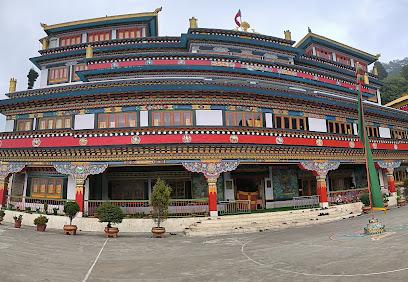
Shri Mahakal Temple, Darjeeling
Experience the spiritual charm and breathtaking views at Shri Mahakal Temple in Darjeeling, a must-visit for every traveler seeking tranquility and culture.
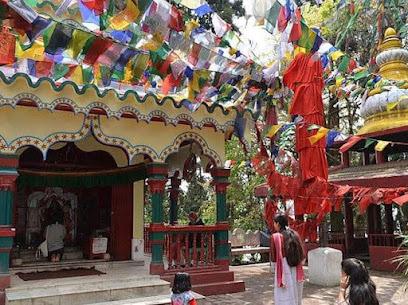
Singalila National Park
Discover the breathtaking beauty and diverse wildlife of Singalila National Park, a must-visit destination in West Bengal for nature lovers and adventurers.
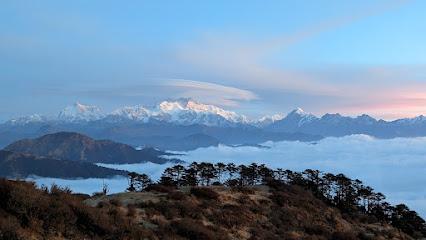
Himalayan Mountaineering Institute
Explore the Himalayan Mountaineering Institute in Darjeeling, where adventure meets education amidst stunning mountain landscapes.
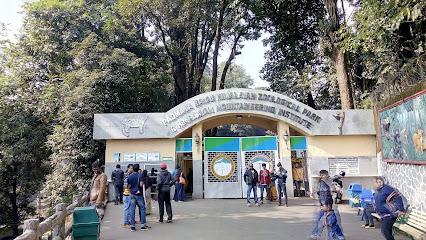
Tiger Hill, Darjeeling
Experience the breathtaking sunrise over the Himalayas at Tiger Hill, Darjeeling - a must-visit for nature lovers and adventure seekers.
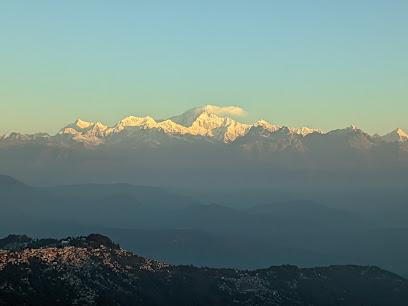
North Bengal Science Centre
Explore the interactive North Bengal Science Centre in Matigarahat, West Bengal, where science ignites curiosity and learning through fun exhibits and shows.
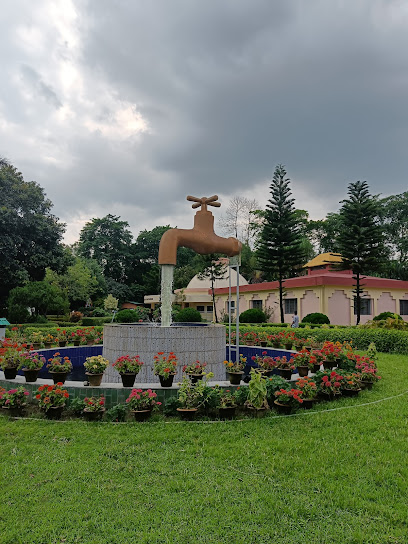
Essential places to dine
Zaika Biryani
Discover authentic Indian flavors at Zaika Biryani in Siliguri – home of delicious biryani and mouthwatering Mughlai cuisine.
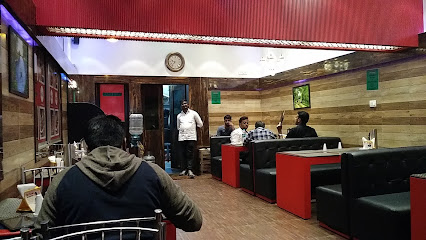
Punjabi Kadhai
Experience authentic Punjabi cuisine at Punjabi Kadhai in Siliguri - where rich flavors meet warm hospitality.
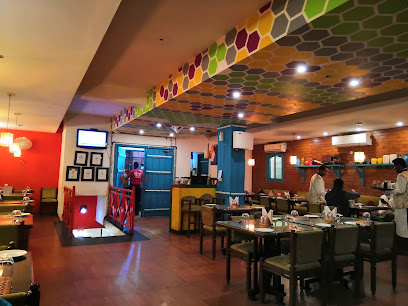
Barbeque Nation, Siliguri
Discover the ultimate barbecue experience at Barbeque Nation in Siliguri - where flavors come alive and meals become memorable.
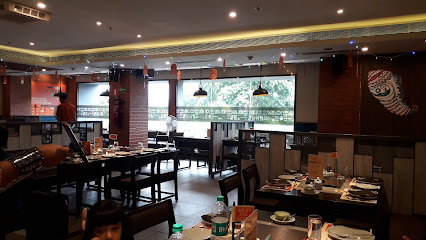
Sagar Family Restaurant
Discover diverse culinary delights at Sagar Family Restaurant in Siliguri—where North Indian flavors meet Chinese favorites in a family-friendly setting.
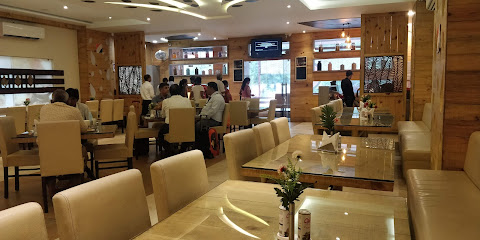
Dhaba by Amber
Experience the rich flavors of North Indian cuisine at Dhaba by Amber in Siliguri – where every meal is a delightful journey through India’s culinary heritage.
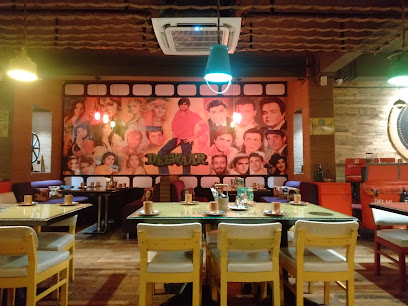
Skkky Club
Discover authentic Indian cuisine and vibrant nightlife at Skkky Club in Siliguri - a must-visit culinary destination!
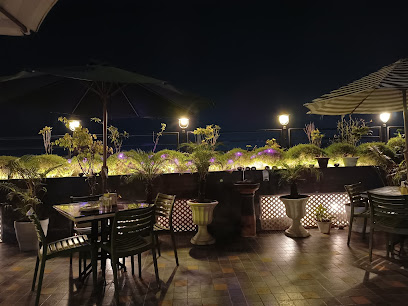
Hashtag
Discover Hashtag in Siliguri: A lively restaurant and pub offering delicious cuisine and vibrant nightlife.
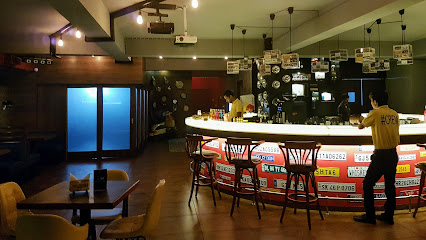
The Yellow Chilli Restaurant
Discover the rich flavors of Indian cuisine at The Yellow Chilli Restaurant in Siliguri - where tradition meets modern dining.
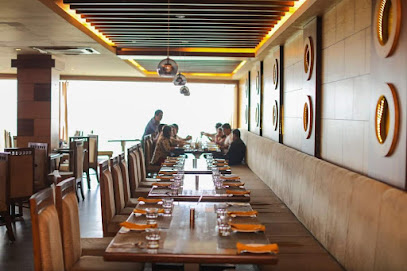
Bhojohori Manna
Experience authentic Bengali flavors at Bhojohori Manna in Siliguri, where tradition meets taste in every dish.
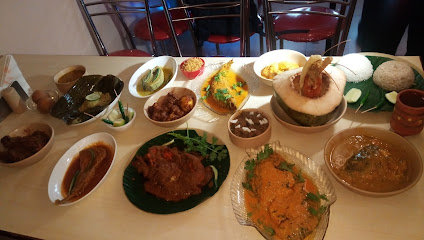
Open House Cafe
Experience culinary delight at Open House Cafe in Siliguri - where exquisite flavors meet vibrant nightlife.
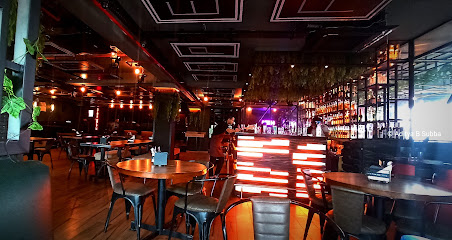
Netaji Cabin
Discover the charm of Netaji Cabin in Siliguri – your go-to tea house and breakfast spot for authentic flavors and cozy ambiance.
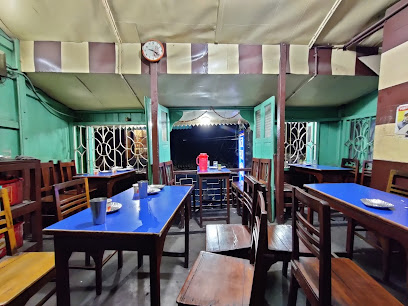
Steamy Moktu
Discover an array of Asian flavors at Steamy Moktu in Siliguri—your destination for delightful fusion cuisine.
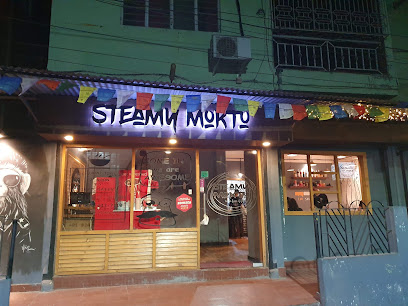
EPARE BANGLA
Experience the rich flavors of authentic Bengali cuisine at EPARE BANGLA in Siliguri - a must-visit dining destination for food lovers.
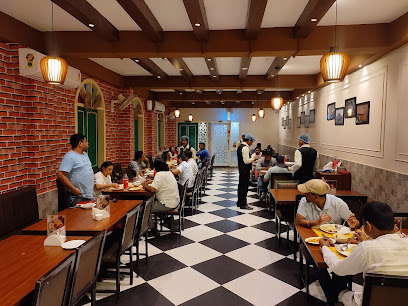
Taiwah Restaurant
Experience authentic Chinese cuisine at Taiwah Restaurant in Siliguri - where flavor meets tradition!
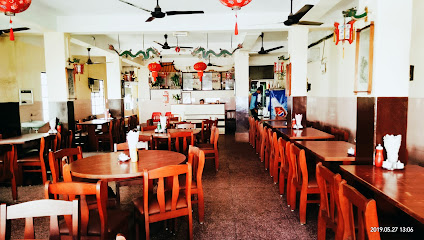
The Gourmet Central Family Restaurant & Bar
Experience a culinary journey at The Gourmet Central Family Restaurant & Bar in Siliguri – where diverse cuisines meet family-friendly dining.
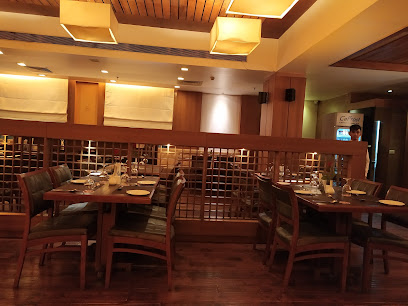
Markets, malls and hidden boutiques
City Centre
Discover Siliguri's City Centre, a vibrant shopping mall filled with diverse shops, enticing eateries, and entertainment options like the INOX Multiplex.
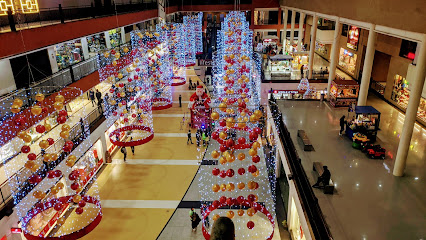
Cosmos Mall
Explore the lively Cosmos Mall in Siliguri for a delightful shopping and entertainment experience amidst a vibrant atmosphere.
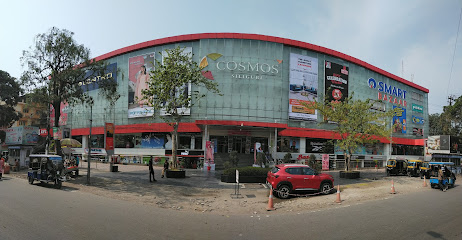
Fashion Factory
Discover the latest fashion trends at Fashion Factory, Siliguri's premier clothing store for all your style needs.
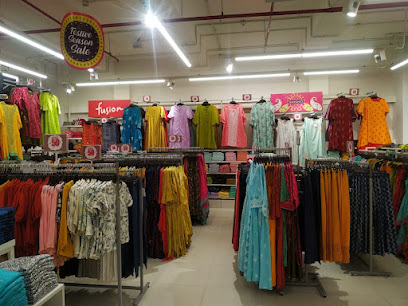
OnePlus Experience Store
Explore cutting-edge mobile technology at the OnePlus Experience Store in Siliguri, featuring the latest smartphones and expert advice.
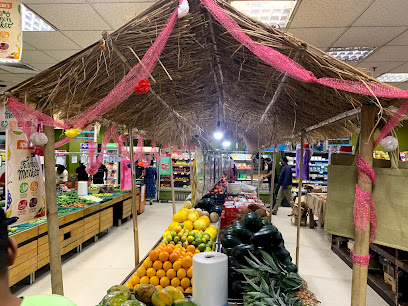
Shoppers Stop
Explore Shoppers Stop in Siliguri for the ultimate shopping experience, featuring a wide selection of clothing and accessories for every style and occasion.
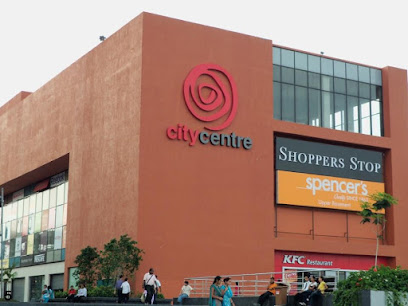
Lifestyle Stores
Explore a diverse range of fashion, beauty, and lifestyle products at Lifestyle Stores in Siliguri, West Bengal - the ultimate shopping destination.
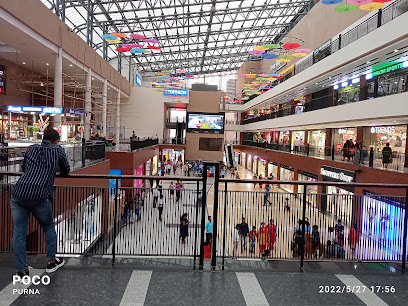
Decathlon Siliguri
Explore Decathlon Siliguri for a vast selection of sporting goods, sportswear, and accessories, perfect for athletes and outdoor enthusiasts alike.
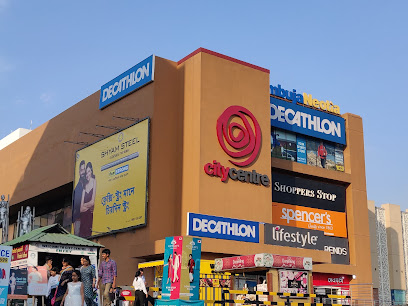
Westside - Sevoke Plaza, Siliguri
Discover diverse fashion choices at Westside - Sevoke Plaza, your ultimate shopping destination in Siliguri for casual, formal, and youth apparel.
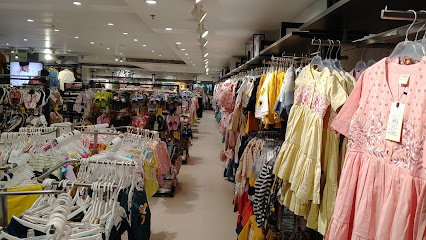
Pantaloons (City Center, Siliguri)
Discover Pantaloons in Siliguri for a diverse selection of stylish clothing and accessories for the whole family, all in one vibrant shopping destination.
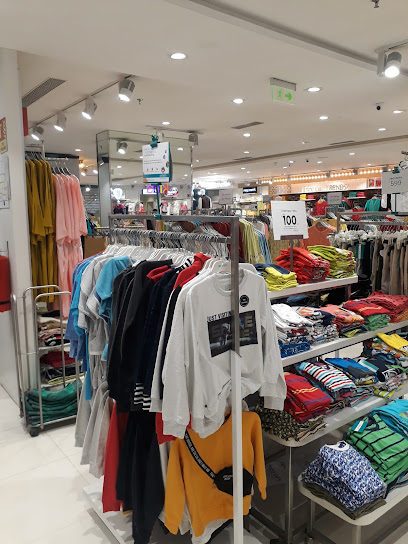
TRENDS
Explore TRENDS in Siliguri for an unforgettable shopping experience filled with trendy casual wear and accessories in a vibrant mall setting.
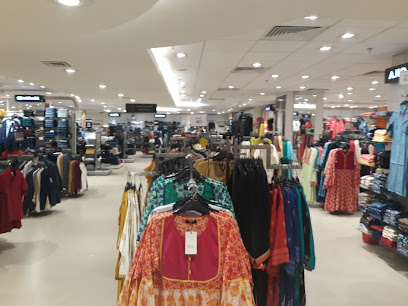
DEVSONS Floral & Gifts
Explore the enchanting DEVSONS Floral & Gifts in Siliguri, offering exquisite floral arrangements, delectable baked goods, and unique gifts for every occasion.
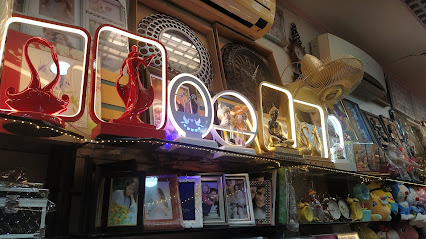
Jockey Exclusive Store
Explore a vast selection of stylish clothing for all ages at Jockey Exclusive Store in Siliguri, where quality meets fashion.

Unique Sweets & Snacks
Experience the essence of West Bengal with delightful sweets and snacks at Unique Sweets & Snacks in Siliguri.
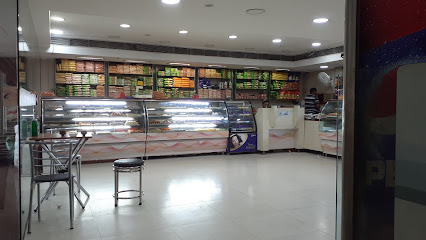
SUPER 99
Discover diverse shopping at Super 99 in Siliguri - your ultimate destination for home goods, toys, and more in a vibrant atmosphere.
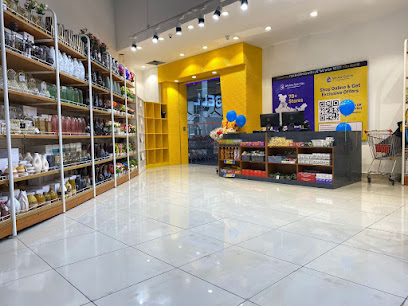
Shalimar - Designer Menswear In Siliguri | Suit | Indo Western | Sherwani | Blazer | Kurta | Shirts | Trousers
Explore Shalimar in Siliguri for the finest in men's fashion, offering suits, sherwanis, and stylish clothing for every occasion.
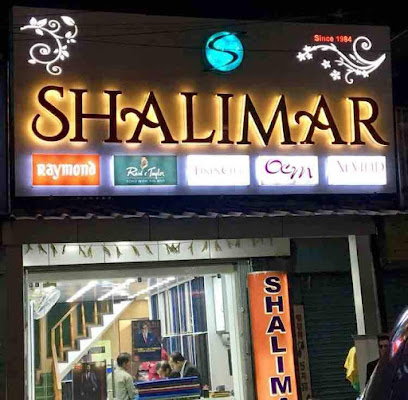
Essential bars & hidden hideouts
Hashtag
Experience the best of Siliguri's nightlife at Hashtag, a vibrant pub offering delicious food, drinks, and live music in a lively atmosphere.
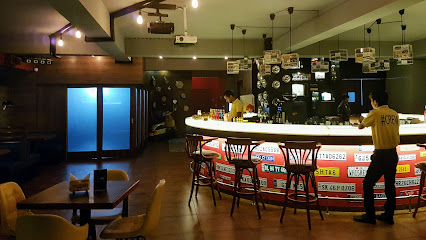
Open House Cafe
Discover the vibrant fusion of flavors and nightlife at Open House Cafe in the heart of Siliguri.
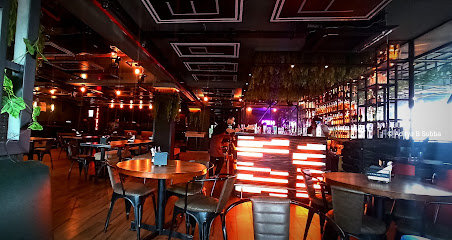
MINT The Resto-Bar Lounge
Experience the perfect blend of grill delights and vibrant bar atmosphere at MINT The Resto-Bar Lounge in Siliguri.
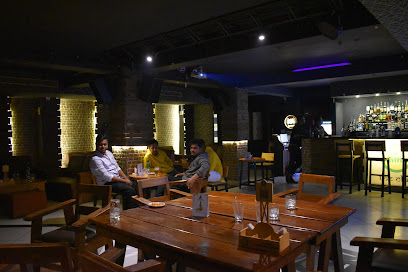
The Green Bar
Experience the vibrant atmosphere and diverse menu at The Green Bar in Siliguri, where every visit is a delightful culinary adventure.
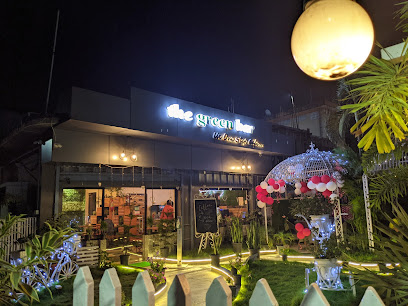
HIGH FIVE
Discover the perfect blend of relaxation and entertainment at HIGH FIVE Pub in Siliguri, where good food meets vibrant nightlife.
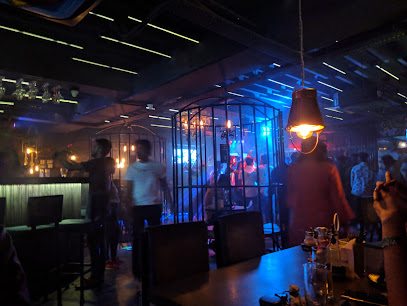
Hi Spirits Cafe & Pub
Discover the vibrant nightlife of Siliguri at Hi Spirits Cafe & Pub, where delicious drinks and delightful bites await you.
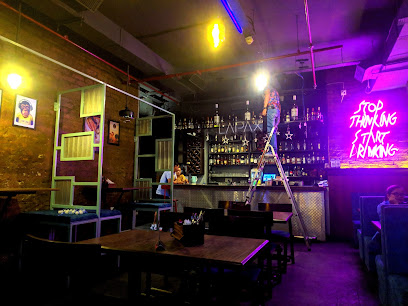
Error ( Brew & Pub )
Discover the lively ambiance of Error (Brew & Pub), where craft brews meet culinary delights in the heart of Siliguri's nightlife.
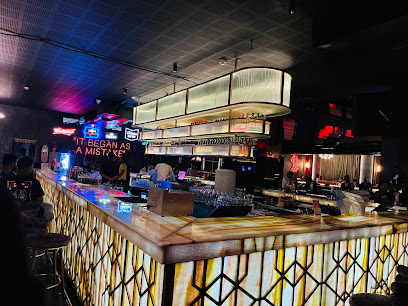
Indiana Bluez
Experience the lively ambiance and delicious fast food at Indiana Bluez, Siliguri's favorite bar and grill for tourists and locals alike.
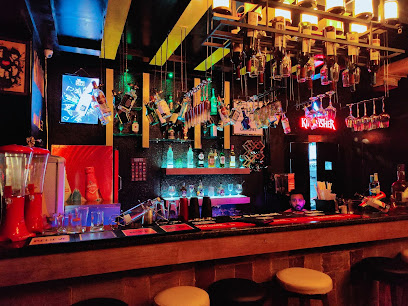
Worth The Hype
Discover Worth The Hype, Siliguri's premier pub offering a vibrant ambiance and a diverse menu that promises a delightful culinary adventure.
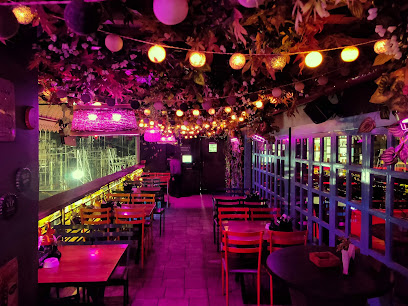
RAAG Kitchen and Pub
Discover the vibrant ambiance and diverse menu at RAAG Kitchen and Pub, Siliguri's premier spot for food and nightlife.
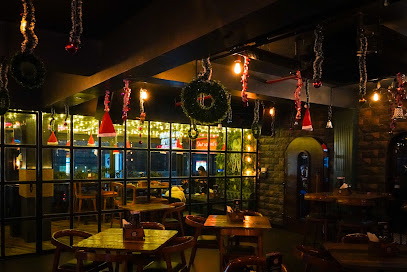
New Nanking Bar and Restaurant
Savor the fusion of local and international flavors at New Nanking Bar and Restaurant, Siliguri's culinary gem.
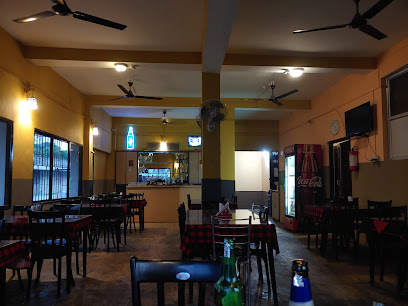
Beer Republic Siliguri
Experience the vibrant nightlife of Siliguri at Beer Republic, where craft beer meets lively entertainment in an unforgettable atmosphere.
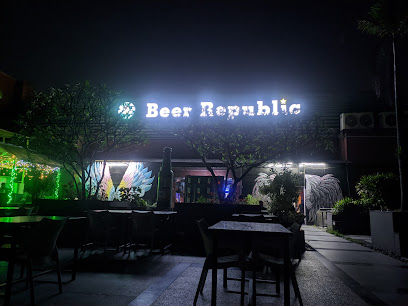
Grand Bar
Discover Siliguri's Grand Bar: A lively destination for drinks, delicious food, and vibrant social experiences.
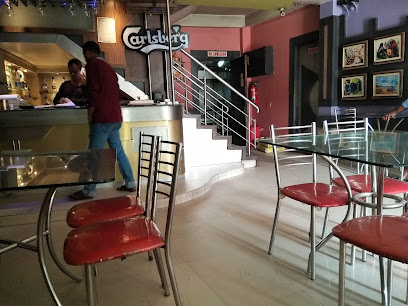
LEV1 BAR & KITCHEN
Discover the vibrant ambiance of LEV1 Bar & Kitchen in Siliguri, where delightful cuisine meets an exciting nightlife experience.
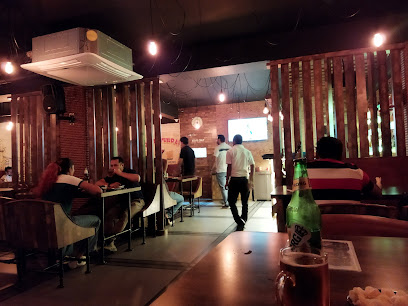
Travel experiences inspired by this city
Explore more travel diariesLocal Phrases
-
- Helloনমস্কার
[Nomoshkar] - Goodbyeবিদায়
[Bidai] - Yesহাঁ
[Haan] - Noনা
[Na] - Please/You're welcomeঅনুগ্রহ করে/আপনাকে স্বাগত
[Onugroho kore/Apanake swagat] - Thank youধন্যবাদ
[Dhanyabad] - Excuse me/Sorryদুঃখিত/দুঃখিত
[Dukhito/Dukhito] - How are you?আপনি কেমন আছেন?
[Apani kemon achen?] - Fine. And you?ঠিক আছি। আর আপনি?
[Thik achhi. Ar apani?] - Do you speak English?আপনি ইংরেজি কথা বলতে পারেন?
[Apani ingreji kotha bolte paren?] - I don't understandআমি বুঝি না
[Ami bujhi na]
- Helloনমস্কার
-
- I'd like to see the menu, pleaseদয়া করে মেনু দেখার জন্য চাই
[Doya kore menu dekhar jonno chai] - I don't eat meatআমি মাংস খাই না
[Ami mangsho khai na] - Cheers!চিয়ার্স!
[Cheers!] - I would like to pay, pleaseদয়া করে আমি দিতে চাই
[Doya kore ami dite chai]
- I'd like to see the menu, pleaseদয়া করে মেনু দেখার জন্য চাই
-
- Help!সাহায্য!
[Sahayyo!] - Go away!চলে যাও!
[Chole jao!] - Call the Police!পুলিসকে কল করুন!
[Poliske kol korun!] - Call a doctor!ডাক্তারকে কল করুন!
[Daktarke kol korun!] - I'm lostআমি হারানো
[Ami harano] - I'm illআমি অসুস্থ
[Ami osustho]
- Help!সাহায্য!
-
- I'd like to buy...আমি ... কিনতে চাই
[Ami ... kinte chai] - I'm just lookingআমি কেবল দেখছি
[Ami kebal dekhchi] - How much is it?এটা কত টাকা?
[Eta koto taka?] - That's too expensiveএটা খুব বাড়ী
[Eta khub bari] - Can you lower the price?দাম কমাতে পারবেন?
[Dam kamate parben?]
- I'd like to buy...আমি ... কিনতে চাই
-
- What time is it?এখন কতটা বাজে?
[Ekhon kotta baje?] - It's one o'clockএটা একটা বাজে
[Eta ekta baje] - Half past (10)দশের সঙ্গে অর্ধেক
[Dasher songe ardhek] - Morningসকাল
[Shokal] - Afternoonদুপুর
[Dupur] - Eveningসন্ধ্যা
[Shondhya] - Yesterdayগতকাল
[Gatkal] - Todayআজ
[Aj] - Tomorrowআগামীকাল
[Agamikal] - 1এক
[Ek] - 2দুই
[Dui] - 3তিন
[Tin] - 4চার
[Char] - 5পাঁচ
[Panch] - 6ছয়
[Chhoy] - 7সাত
[Sat] - 8আট
[At] - 9নয়
[Noy] - 10দশ
[Dosh]
- What time is it?এখন কতটা বাজে?
-
- Where's a/the...?এখানে ... কোথায়?
[Ekhane ... kothay?] - What's the address?ঠিকানা কি?
[Thikana ki?] - Can you show me (on the map)?আপনি আমাকে দেখাতে পারবেন (ম্যাপে)?
[Apani amake dekhate parben (mape)?] - When's the next (bus)?পরের (বাস) কখন?
[Porer (bas) kohon?] - A ticket (to ....)একটি টিকেট (থেকে ....)
[Ekati ticket (theke ....)]
- Where's a/the...?এখানে ... কোথায়?
History of Siliguri
-
Siliguri, situated in the foothills of the Eastern Himalayas, has a rich history that dates back to ancient times. The region was once part of the ancient kingdom of Kamrupa, which finds mention in various historical texts and inscriptions. The area was predominantly inhabited by various indigenous tribes who lived harmoniously with nature and practiced agriculture and trade.
-
The strategic importance of Siliguri came to the forefront during the British colonial period. In the early 19th century, the British East India Company identified Siliguri as a crucial transit point for trade and military logistics. The construction of the Darjeeling Himalayan Railway in 1881 further bolstered Siliguri's significance, transforming it into a gateway to the scenic hill station of Darjeeling and other parts of Northeast India.
-
The partition of India in 1947 had a profound impact on Siliguri. The town found itself on the borders of the newly formed countries of India and East Pakistan (now Bangladesh). This geopolitical shift led to an influx of refugees and migrants, significantly altering the demographic and cultural landscape of Siliguri. The town rapidly grew in importance as a commercial hub, connecting India to its northeastern states and neighboring countries.
-
In the late 1960s and early 1970s, Siliguri became a focal point for the Naxalite movement, a radical communist uprising that sought to address issues of land reform and social justice. The movement, which originated in the nearby Naxalbari village, had a significant impact on the region's socio-political environment. The movement, although violent and controversial, highlighted the struggles of marginalized communities and brought attention to the need for systemic change.
-
Post-independence, Siliguri experienced rapid economic growth and modernization. Its strategic location as a trade and transportation hub led to the development of various industries, including tea, timber, and tourism. The establishment of the Bagdogra Airport and the New Jalpaiguri Railway Station further enhanced Siliguri's connectivity, making it a bustling urban center. Today, Siliguri is known for its vibrant markets, educational institutions, and as a gateway to the northeastern states of India.
-
Siliguri is a melting pot of cultures, with a diverse population comprising Bengalis, Nepalis, Biharis, Marwaris, and various indigenous communities. This cultural mosaic is reflected in the town's festivals, cuisine, and daily life. Major festivals like Durga Puja, Diwali, Losar, and Maghe Sankranti are celebrated with great enthusiasm, showcasing the region's rich cultural heritage. The town's markets are a testament to this diversity, offering a wide array of goods ranging from traditional handicrafts to modern commodities.
Siliguri Essentials
-
Siliguri is well-connected by air, rail, and road. The nearest airport is Bagdogra Airport, which is around 16 kilometers away and offers domestic flights from major Indian cities. Siliguri Junction and New Jalpaiguri (NJP) are the primary railway stations, connecting the city to various parts of India. By road, Siliguri is accessible via National Highway 31 and 55. Regular bus services operate from nearby cities like Kolkata, Guwahati, and Patna.
-
In Siliguri, local transportation options include auto-rickshaws, cycle-rickshaws, and taxis. Auto-rickshaws are a common and affordable way to travel short distances. Cycle-rickshaws are slower but offer a more leisurely way to explore the city. Taxis are available for longer journeys and can be booked via ride-sharing apps. For intercity travel, buses and shared jeeps are widely used, connecting Siliguri to nearby towns and tourist destinations like Darjeeling and Kalimpong.
-
The official currency in Siliguri is the Indian Rupee (INR). Credit and debit cards are accepted in most hotels, restaurants, and shopping centers. However, it is advisable to carry some cash for smaller establishments and street vendors. ATMs are readily available throughout the city, but ensure you have sufficient cash for travels to remote areas.
-
Siliguri is generally a safe city for tourists, but it is always best to take standard precautions. Avoid isolated areas at night and be cautious of your belongings in crowded places such as marketplaces and bus stations. Areas like Sevoke Road and Bidhan Market can be busy, so stay alert. Petty crimes like pickpocketing can occur, so keep your valuables secure.
-
In case of an emergency, dial 100 for police assistance, 101 for fire services, and 102 for medical emergencies. The North Bengal Medical College and Hospital is the primary healthcare facility in the area. Pharmacies are widely available for minor health issues. It is recommended to have travel insurance that covers medical emergencies.
-
Fashion: Do dress modestly, especially when visiting religious sites. Avoid overly revealing clothing. Religion: Do respect local customs and remove your shoes before entering temples. Public Transport: Do be patient and respectful on crowded buses and shared jeeps. Don't eat or drink on public transport. Greetings: Do greet people with a 'Namaste' by joining your palms together. Eating & Drinking: Do try local delicacies and accept food offerings graciously. Don't refuse hospitality, as it is considered impolite.
-
To experience Siliguri like a local, visit the Hong Kong Market for a variety of goods at reasonable prices. Try the local cuisine, including momos and thukpa, at small eateries. Engage with locals, who are often friendly and willing to share insights about the city. Don’t miss visiting the Mahananda Wildlife Sanctuary for a chance to see diverse flora and fauna. For a unique experience, take a toy train ride from NJP to Darjeeling, offering scenic views of the Himalayas.
Nearby Cities to Siliguri
-
Things To Do in Darjeeling
-
Things To Do in Gangtok
-
Things To Do in Phuentsholing
-
Things To Do in Paro
-
Things To Do in Rangpur
-
Things To Do in Thimphu
-
Things To Do in Wangdue Phodrang
-
Things To Do in Punakha
-
Things To Do in Namche Bazaar
-
Things To Do in Trongsa
-
Things To Do in Bumthang
-
Things To Do in Jakar
-
Things To Do in Rajshahi
-
Things To Do in Mongar
-
Things To Do in Nagarkot











